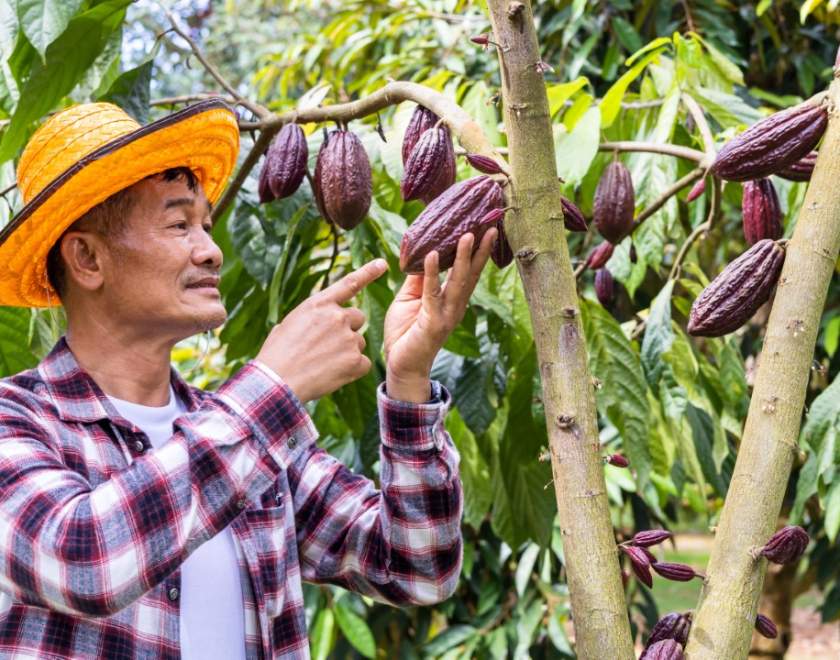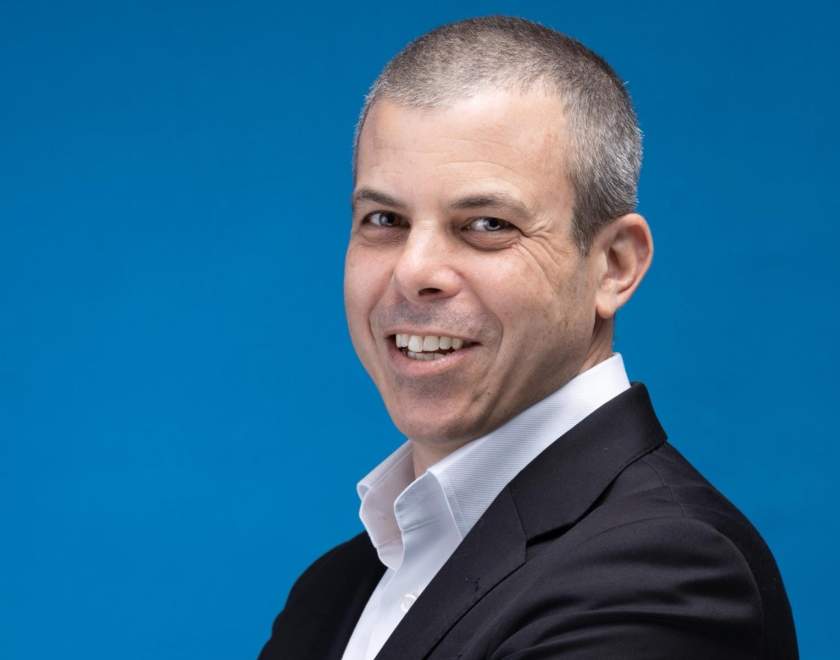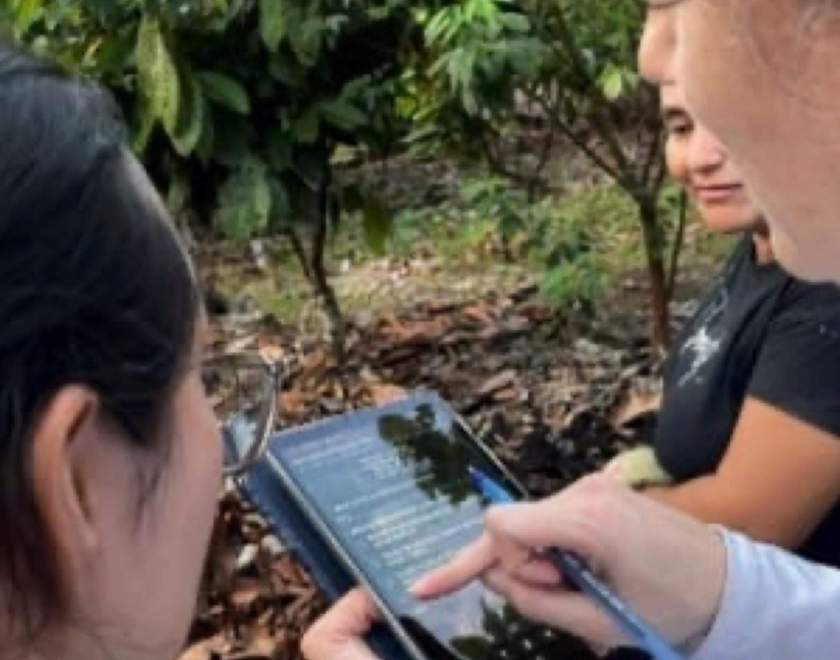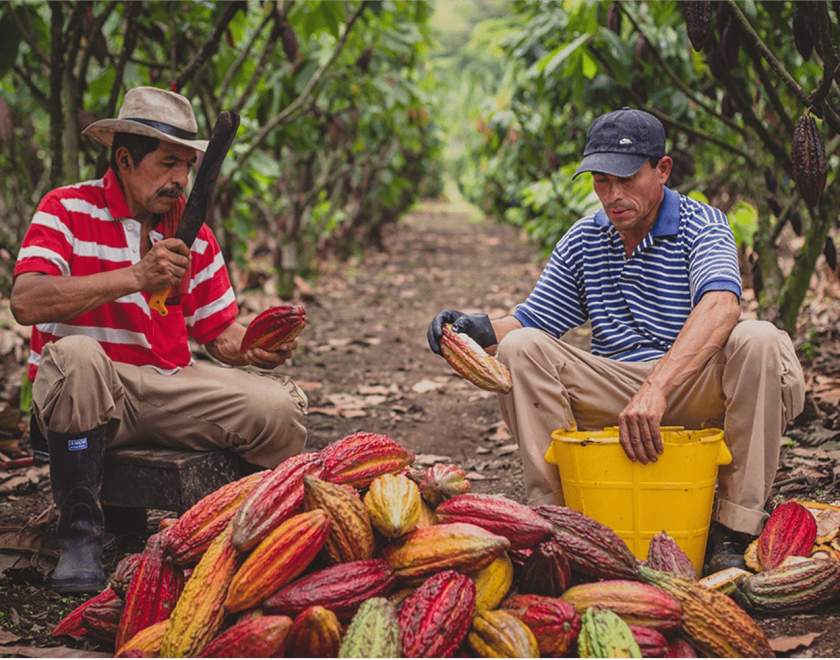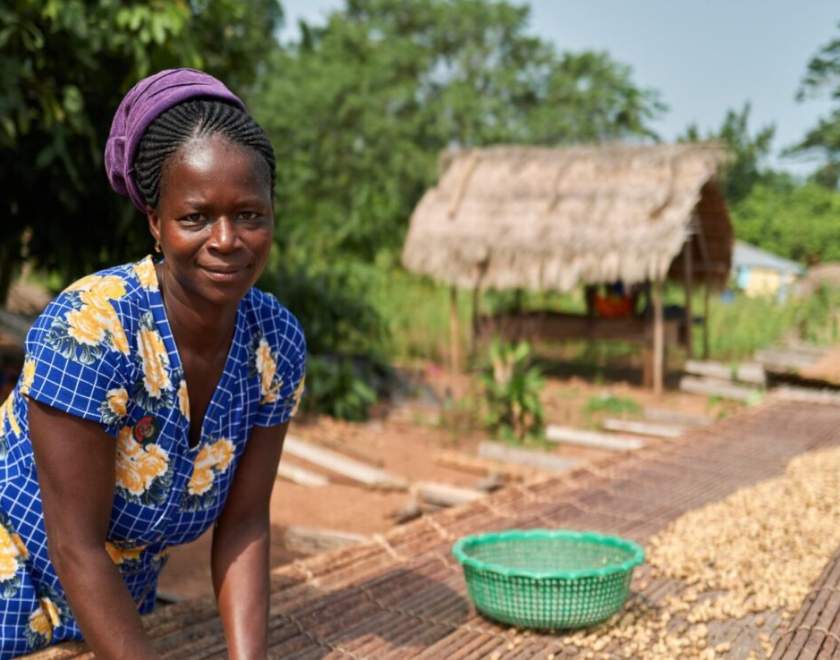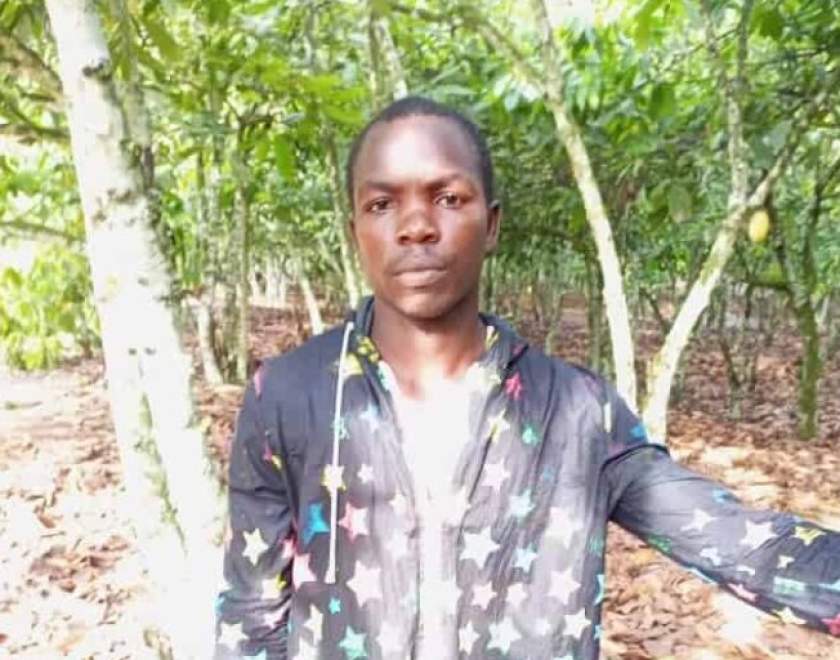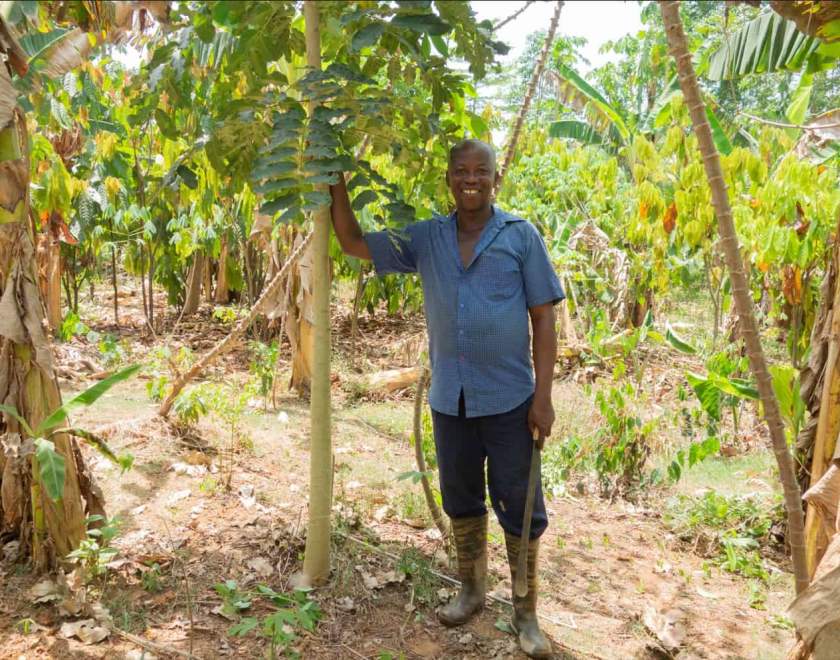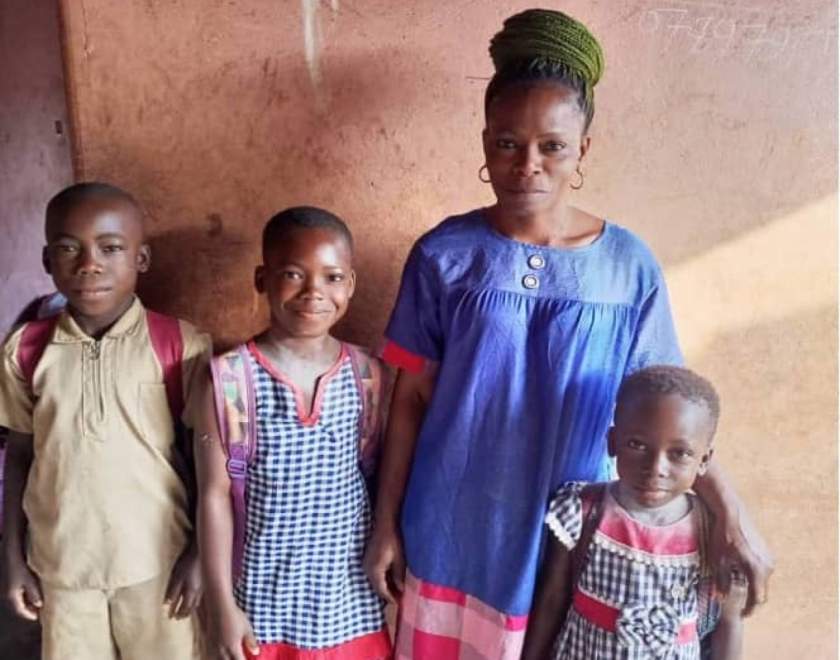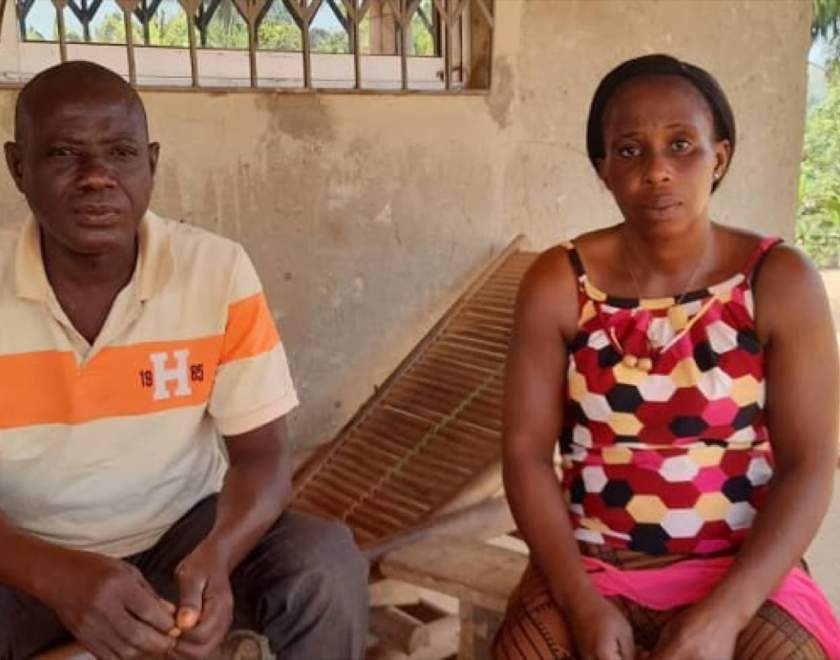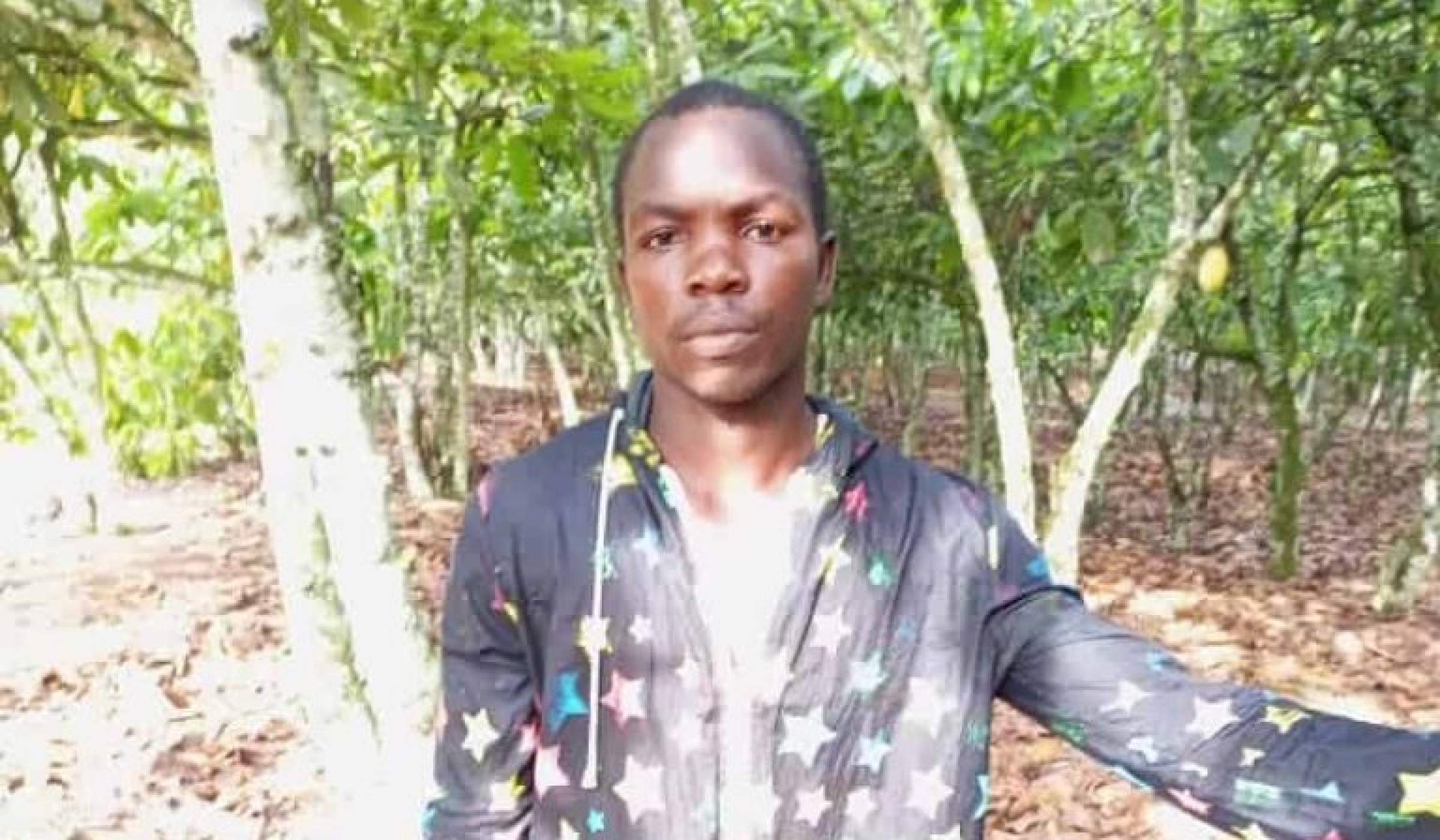
Sawadogo Ousseni lives with his brothers, his wife and children in the village of Grebo, in the DIVO region of Côte d'Ivoire.
He is a cocoa farmer affiliated with the SCOOPAKAM cooperative and cultivates a plot of land of about 3 hectares that he inherited from his father.
As a result of sensitization campaigns, Sawadogo Ousseni understands the definition of deforestation and its consequences: "Cutting down trees affects nature. Before, there were forests everywhere. Today, there are none left, which explains the absence of rain". Indeed, during his interview, Sawadogo Ousseni explains that not only are the periods of drought more severe, but also that the periods of rainfall are more unpredictable than before. The rainy season, which used to occur in March, is often eagerly awaited by the producers. Some small cocoa trees can die during this season due to infections, but when they should be replaced, the drought prevents replanting. Thus, the work to maintain the farm and ensure adequate yields is becoming increasingly difficult. Sawadogo Ousseni is aware that these difficulties are the result of deforestation.
In order to remain resilient in the face of climate change, Sawadogo Ousseni has received support from his cooperative and technical partners. First, to better understand his plot of land, technicians have accurately GPS mapped his 3.2-hectare farm. Through this technique, the cooperative also ensures traceability and compliance of the farm. The farmer has also received support for the implementation of agroforestry. Within his cocoa farm, he has planted a wide variety of indigenous tree species such as framiré, colatiers, avocado trees and akpi. Most of these crops are intended for his household's consumption but also for sale, thus providing the farmer with access to additional income. This is not the only benefit of agroforestry, which, through the diversification of species, from an environmental standpoint, helps preserve biodiversity and reduce the carbon footprint of the plot.
